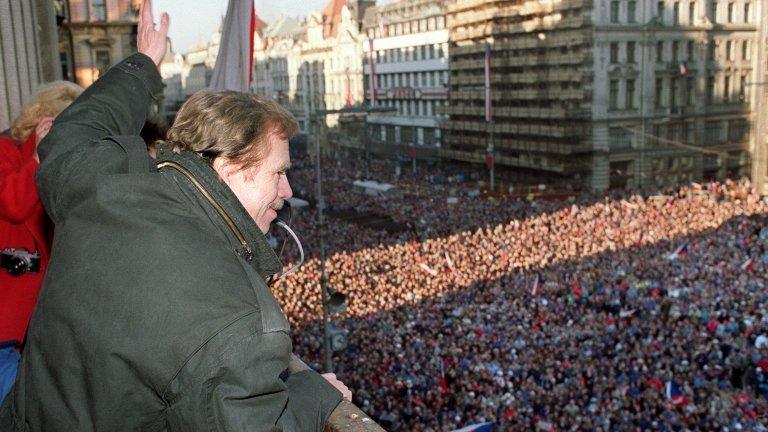Soviet 1968 invasion: Czechs still feel Cold War shivers
- Published
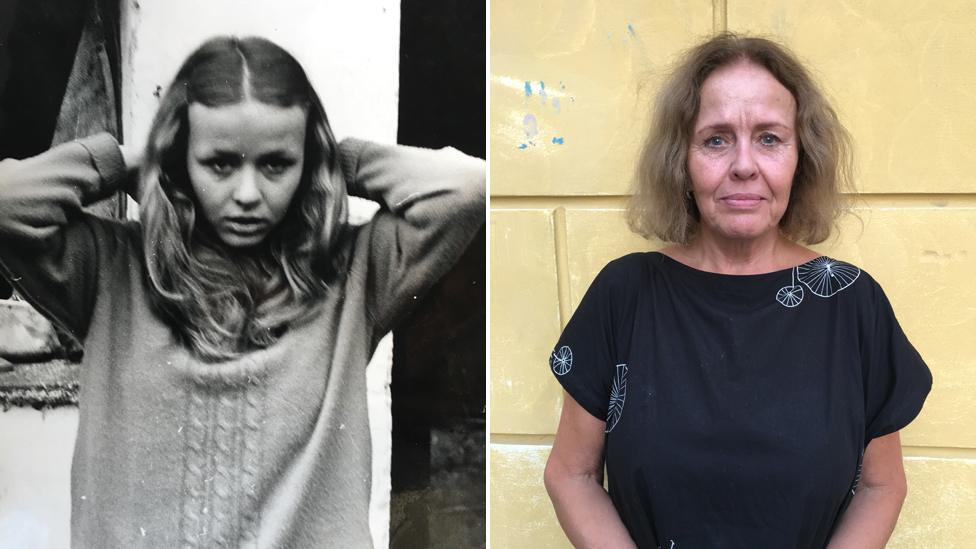
Ivana Dolezalova in 1968 and today
The young woman in the photo has her hands clasped behind her neck, as if in surrender. Her forehead is furrowed, her eyes ringed with exhaustion.
"Sorry, it's all I could find," said Ivana Dolezalova, smoothing out the large black-and-white print on the cafe table.
The photo of 19-year-old Ivana is appropriate for 1968, when Soviet tanks roared into Czechoslovakia overnight, I thought. I wondered when it had been taken.
"Oh it's nothing to do with the invasion," she said, reading my thoughts. "I did have some from August '68, but someone borrowed them and never gave them back."
We were in Jungmannovo Namesti, a small Prague square named after the 19th-Century linguist credited with inventing the modern Czech language.
Prague 1968: The Soviet invasion of Czechoslovakia
Ivana, herself a translator, scholar and journalist, has vivid memories of this place.
"The first three days, me and my classmates from high school and our teachers used to go to the tanks, and we talked to the soldiers sitting on them."
"We sort of felt like there must be some mistake, and we wanted to explain it to them. Which is of course extremely naive but, you know, you are 19 and you are in just a complete state of shock," she went on.
The soldiers were part of a 250,000-strong invasion force from five Warsaw Pact countries which invaded Czechoslovakia from the north, east and south.
Fifty years ago they were sent by Moscow to crush the so-called Prague Spring - the liberalising reforms of Czechoslovak communist leader Alexander Dubcek.
"So we came to this very square, and we were telling them 'go home, there is no counter-revolution, we are peaceful, no one wants to do any harm'," said Ivana, recalling images immortalised in the 1988 film adaptation of Milan Kundera's bestseller, The Unbearable Lightness of Being.
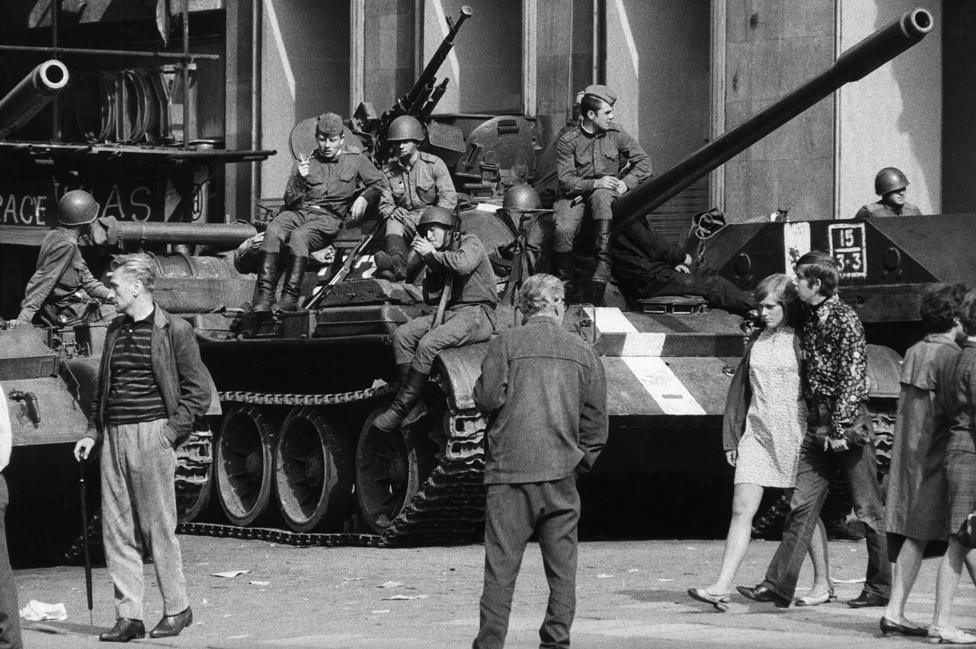
Soviet tanks rolled into Prague on 21 August 1968
"They were sort of listening, those first days, puzzled. No wonder - we had bare hands, no weapons," she said.
Their discussions with the Soviet soldiers ended abruptly when one of them mistook a camera for a gun, and started firing into the air.
Borders sealed
Historians say 108 Czech and Slovak civilians were killed during the first four months of the invasion, many run over by Russian tanks and lorries.
By 1969, when the borders were closed, some 100,000 had fled the country, with many more emigrating until the fall of communism in 1989.
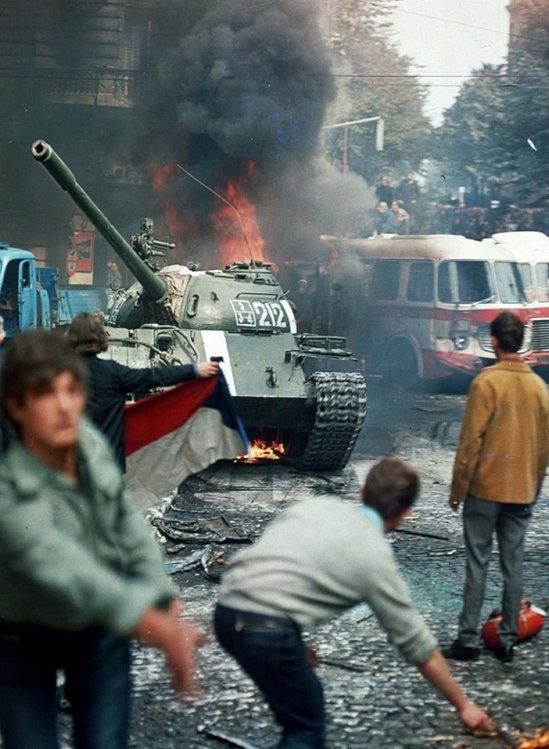
Some Czechs threw petrol bombs - but the armoured invasion was overwhelming
Those who stayed were given a stark choice: abandon opposition to the Soviet occupation and accept the "normalisation" of society, or lose jobs, careers, the chance to send your children to university.
Thousands of lives were ruined as people made difficult moral decisions. Many chose a sort of internal exile, turning to innocuous pursuits like sports or hiking or fleeing to the country cottage for the weekend, where they could escape the oppressive conformity of 1970s socialist society.
Dubcek - who had been flown to Moscow in handcuffs - returned a broken man. He briefly served as ambassador to Turkey, before being made a minor forestry official in Slovakia.
Read more about former Czechoslovakia:
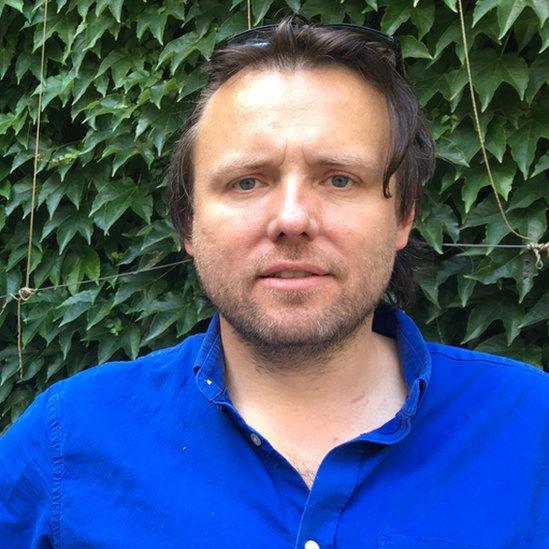
Filmmaker Filip Remunda was surprised by some Russian attitudes today
Czech filmmaker Filip Remunda has revisited the events of that summer in a new documentary, Occupation 1968, that features films by five directors from the five ex-Warsaw Pact countries that took part in "Operation Danube".
"This is the first time ever we've been able to show the occupation from the perspective of the occupiers," he said.
"What really surprised me was that one of the Russian soldiers, now a general, told me he still believes it was the most successful military operation in history," Remunda told the BBC.
"He also believed that he was here because of the counter-revolution, that we had basements full of weapons, that an American division had penetrated Czechoslovakia and a Russian division had kicked them out. They believed that was the moment that they'd prevented the outbreak of the Third World War."
"This is the perspective of generals of the Russian military. Fifty years on, and they are still thinking according to this old Soviet pattern," he went on.
Historical amnesia
Dr Josef Skala, an influential member of the modern-day Czech Communist Party, says the invasion must be seen in wider geopolitical terms.
"This period was a bipolar world, when both poles, both superpowers, were promoting their interests through military power," he told the BBC.
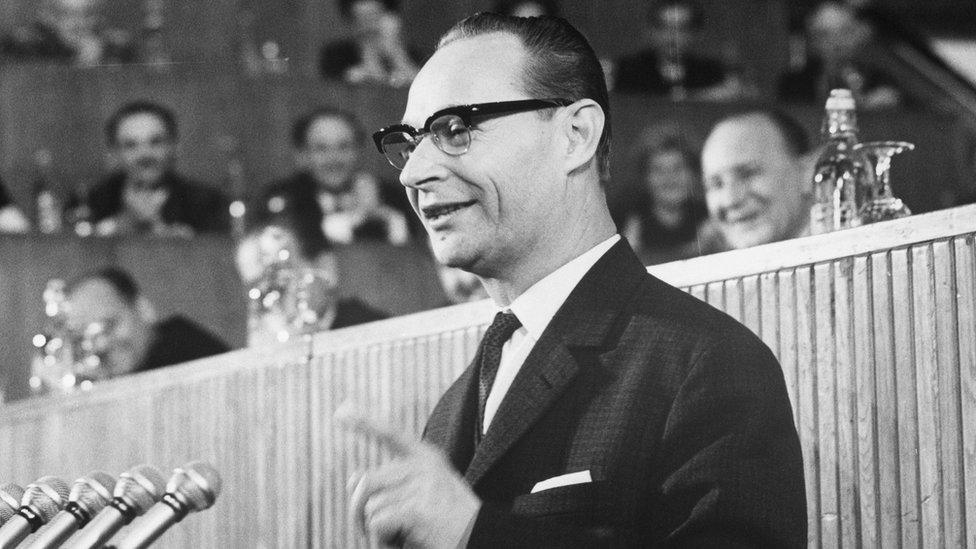
Czechoslovak leader Alexander Dubcek wanted "socialism with a human face"
"When the Soviets invaded, there was no napalm. There was no Agent Orange. Czech women were not forced to become prostitutes for Soviet troops," he went on, taking a swipe at America's war in Vietnam.
"Nobody can be happy that the crisis was solved that way, obviously. But if you are asking for a geopolitical context - that's it."
That narrative pales in comparison with the version of events presented to Russians. A recent Russian TV documentary portrayed Dubcek's reforms as a fascist coup, and claimed a Nato invasion had been imminent.
Ivana Dolezalova is less worried about Russian disinformation than Czech historical amnesia. A recent survey suggested that half of young Czechs had no idea what had happened in 1968.
She also sees disturbing parallels between 1970s communist "normalisation" and contemporary Czech politics, which has lurched to the right since the migrant crisis.
"Of course it's taking a different shape, but it could become a kind of authoritarian regime. The problem I have with my compatriots is that lots of them would not mind it," she told me.
"Many people, especially in the countryside, will tell you that if Putin was in charge at least there would be order," Ivana said.
"The borders would be closed. And the worst thing is they wouldn't mind being closed in."
- Published11 December 2023
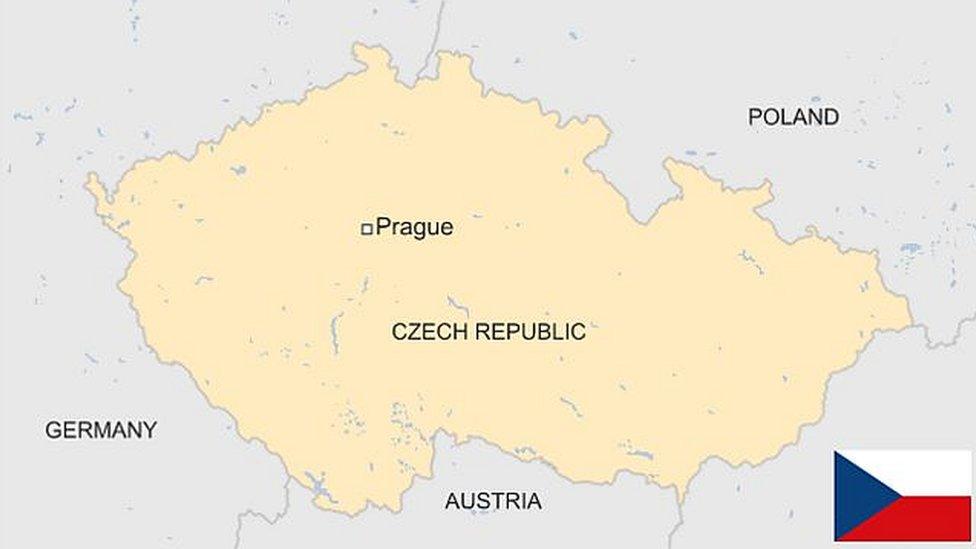
- Published17 November 2014
